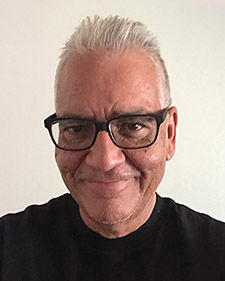The recent passing of Barbara Bush and her request to die with dignity has shone some light on the question of death and dying. I am hoping it will help people begin to talk about these issues among themselves and especially with their families.
For me, I have always been all right with death. My mother was very casual about death. She used to tell me, with a shrug of her shoulders, “When your time is up, your time is up.” I took her at her word and have pretty much lived that way my whole life.
As I aged I witnessed anecdotal evidence of this notion. I noticed that the long distance runner who was the picture of health died of a heart attack. I watched my uncle Harry chain smoke and start every day with a shot of bourbon and live into his late 80s. Of course, I have also witnessed a cigarette smoking friend die of cancer and an overweight cousin die of diabetes complications so I’m not advocating unhealthy living.
When I do think of death I firmly believe it is unknown. I’ve never known anyone to die and come back to tell us what it is like. I have read the reports and heard near-death experience talk about moving toward the white light. But as far as we know, once someone hits that white light they could just simply be absorbed.
What we do know is that many people suffer at the end of their lives from failing bodies. Regardless of the reason, for me, it is painful to see. When I am near someone who is suffering in those last moments I wonder why this person has to suffer. Could not they have been allowed a more dignified way to die? And when I witness death in a hospital, it breaks my heart to see people strapped down and filled with “life extending” plastic tubes pumping chemicals into them.
Some states, including California, have started enacting laws and exploring the idea of allowing people to choose to die. It’s a difficult situation. At what point should it be permitted? Who should be allowed to make that decision?
As a young man I worked as a hospital orderly and witnessed many comatose patients. Some were legally dead, no brain function, but still the family insisted on life support, hoping for a miracle that never came. But I also watched a motorcycle accident victim pop out of a coma he had been in for months.
These examples convinced me that we just don’t know and to pull life support from a person is a very difficult decision. But should a person still mentally functioning well have the right to decide when he or she should die? And if this is allowed, would it include a person who is physically healthy but simply wishes to die? Once again, this is a very difficult question.
We weren’t given a choice of when to be born (as far as we know). Why should we be given a choice of when to die? The only time I am comfortable with the choice of death over life is when I see suffering where there is no hope.
There are no easy answers and there are lots of difficult questions. I think the important thing is to open the dialogue. Learn your family and friends’ final wishes and let them know yours.
In my perfect world, it would be ideal if we all could die with dignity.
Gabriel A. Fraire has been a writer more than 45 years. He can be reached through his website at: www.gabrielfraire.com.









